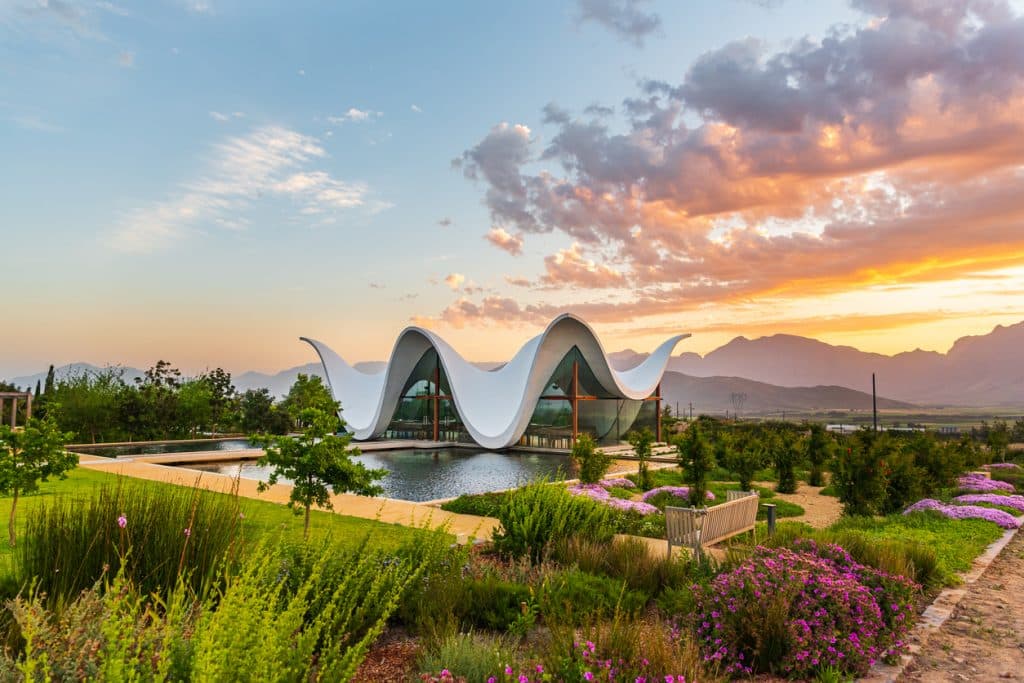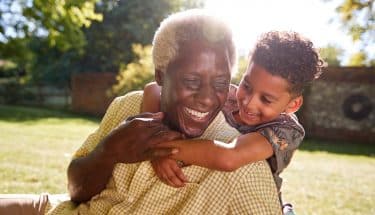If you are a Canadian citizen or permanent resident, once you have married your South African fiance or you have lived together for one year as common-law partners, you can sponsor him or her for permanent residence in Canada.
Requirements To Get Married in South Africa
- A copy of your ID.
- Two witnesses & their IDs or passport (if they are a foreign nationals)
- Your passport (if you are a foreign national)
- Divorce order, if applicable
- Death certificate, if applicable, in cases of a deceased spouse.
What if both parties are not South African?
If one of you or both of you are not South African, you will be required to undergo a brief interview, with an immigration officer at the Department of Home affairs.
This is done in order to ensure that the marriage is sincere and that the marriage is not taking place for reasons other than love, such as forced marriage or immigration fraud.
Is there a waiting period for foreigners who wish to get married in South Africa?
The simple answer is ‘no’. When it comes to foreigners getting married in South Africa, no waiting period is required. You can literally get married on the day that you arrive.
Costs of a South African Wedding :
- When you get married, you’ll be issued with a handwritten marriage certificate (BI-27) at no cost
- Re issuing Cost will be 75 South African Rand= 6 CAD( approximately)
Steps to get married in South Africa:
Marriage ceremonies may only be conducted by a licensed marriage officer, such as a religious minister, magistrate or Home Affairs marriage officer.
Weddings in South Africa must take place in a church or religious building, a public office (such as a magistrate’s court) or private dwelling. If there is a serious illness, a wedding may take place in a hospital or other such medical facility.
The service must be conducted in the presence of two witnesses.
If you plan to marry in a private or public garden or on the beach, you may need to repeat the legal aspect of the service in one of the legal locations. The same applies to marrying in a restaurant or other building not defined by the act. However, as long as your marriage is solemnized by a competent Marriage Officer, the courts are not readily inclined to declare a marriage invalid simply because it was held in the wrong place.
Getting married at Home Affairs or court
Couples that intend to get married, but are not interested in a ceremony at church or other public location may hold their ceremony at any Home Affairs office. Marriage ceremonies at a Home Office are free of charge and entitled under the Civil Union Act 2006 for both heterosexual and homosexual couples.
Complete the marriage interview
Before a marriage is declared legal in South Africa, couples are required to attend a Home Affairs marriage interview. The purpose of this procedure is to ensure that both parties are willingly entering into marriage of their own accord and not under duress. If you fail to attend an interview, the marriage certificate will not be registered and the marriage will be declared null and void.
Pre-nuptial agreements in South Africa
Marriages in South Africa are automatically ‘in community of property’, meaning that assets from both partners are joined. If you intend to get married ‘out of community of property’ in South Africa — meaning that you keep your assets separate — , you should consult a lawyer beforehand to draw up a contract designating the division of property, called a prenuptial agreement.
Prenuptial agreements protect one party from liability of debts accrued by their spouse and allows you to maintain wealth and property accumulated during the marriage.
Before getting married, you are required to present any prenuptial agreements to the marriage officer with a letter from your lawyer confirming the agreement was mutual.
https://www.expatica.com/za/living/love/getting-married-in-south-africa-105913/
*****IMPORTANT*****
Under the South African Marriage Act, couples must be presented with a marriage certificate immediately after the ceremony. The type of marriage certificate, which must be signed by two witnesses and the marriage officer, depends on the status of your nationality.
Abridged marriage certificate
All couples married in South Africa receive abridged marriage certificates, which are presented to the couple immediately after the ceremony. If one of you is a South African and living in South Africa, this is the only certificate you require.
Unabridged marriage certificate
Unabridged marriage certificates are issued to non-South African couples, couples in which one partner is not South African, and couples that are not living in South Africa. You should also apply for an unabridged marriage certificate if you plan to be out of the country for an extended period of time shortly after marriage. Unabridged marriage certificates, which receive an apostille at the Cape Town High Court, enable you to register your marriage in your country of residence.
Commonly observed South African marriage customs:
Karamu wedding feast
The wedding meal which follows the wedding ceremony is traditionally known as the Karamu. Before the reception begins, the oldest male present (usually a relative of the bride or groom) gives a blessing of the couple and the festivities about to be celebrated.
Table decorations using African customs and symbols
Four Elements – An old African tradition describes tasting the four elements – lemon, vinegar, pepper, and honey. Use this to create a sensory centrepiece, with four decorative pots containing each element included in a simple floral centrepiece. Give each guest a spoon, and a card that explains the tradition. Guests are invited to taste the four elements along with the newly married couple. This ritual dramatizes the “Traditional” promise to love “for better or worse, for richer or poorer, in sickness and in health.
Kola Nuts – In Africa, the kola nut is a symbol of healing and used for many medical purposes. Exchanging kola nuts with friends and family symbolises that they will always be able to heal their differences, that no adversity would ever prove greater than the love they have for one another. Hang kola nuts from a decorative branch on each table, or fill a beautiful vase with them and invite your guests to share and swap them with each other to partake of this unique custom.
Twelve symbols of life – Twelve items represent a different aspect of the love and strength which unites two families. These are wine, wheat, pepper, salt, bitter herbs, water, a pot and spoon, a broom, honey, a spear, a shield, and a copy of the Bible or the Koran. These items are always present at an African wedding, and could easily be included in the table decorations at the reception.
Sharing and feeding others – It is the African belief that in marriage, a couple are joining not only their own lives but those of their families. This is demonstrated by each feeding the other’s family from baskets of unleavened bread, serving the older members of both families first and most ceremoniously to show respect.
Additionally, custom dictates that the bride must feed her new husband to show the wedding guests how well she will take care of him in the future. If she does not feed him or give him a drink properly, the senior women in her family and his are required to show her how to do so properly. Once he eats what she has given him, she will then take him and officially present him to her parents as her husband. Her parents will ask her in front of all the guests to confirm that she has made this choice herself and she will publicly agree.
In modern-day society, these rituals are performed ceremonially and more for show, but the roots remain as strong as they ever were.
Dancing
In most African wedding cultures, there is often the famous money dance. The newly-married couple dance for as long as they possibly can as their wedding guests shower them with money. What happens to all the cash collected varies from culture to culture; some couples get to keep it all as a gift to themselves whereas in some areas the money goes to the mother of the bride..
Fire
In South Africa, to mark the start of the newlyweds’ life together, the bride’s and groom’s parents would traditionally carry a fire from their hearths in their homes to the home of the new couple, where a new fire would be lit.
https://www.toptableplanner.com/blog/south-african-wedding-traditions/
Possible Challenges for Getting Married in South Africa
- The law states that certain categories of people may not marry. These include:
- Minors, unless the prescribed consent to the marriage has been given by the parents in writing
- People who are already married. Bigamy is a punishable offence in South Africa. Such marriages are also null and void under South African law
- Customary Marriages:- In South Africa, the definition of a customary marriage is one that is “negotiated, celebrated or concluded according to any of the systems of indigenous African customary law which exist in South Africa”. This does not include marriages concluded in accordance with Hindu, Muslim or other religious rights.
- The Civil Union Act (effective from December 2006) allows anyone – regardless of their sexual orientation – to marry either through a civil union, a civil marriage or a customary marriage.
Sponsoring Your Spouse From South Africa To Canada

Questions commonly asked at sponsorship interviews in South Africa
Personal Information about your partner
- Names and any previous names
- Date of birth
- Names, location and general details about siblings, parents and any children
- Have you met his/her relatives and when?
- Previous relationship history
- Address and contact details
- Work – position, location, roster and income
- Education
- Visa history – have they sponsored or sponsored anyone before?
- Favourite food/place, hobbies and faiths
- Future plans for children?
- Personality
Relationship Information
- How did you know each other?
- When and where did you meet in person?
- When did you start a relationship?
- When did you decide to have a lifelong commitment to the exclusion of all others?
- Details of proposal, marriage registration, marriage celebration
- Living arrangements – Living together? Living apart temporarily? Who does what chores in the house?
- Communication when living apart – how and how often?
- Financial arrangements – Who pays the bills? Future plans?
- Major joint purchases? e.g. house, car, appliances, investments
- Future plans in Canada – Work? Study?
Cultural practices in South Africa which may be challenging in sponsorship applications/interviews, such as:
- Civil partnerships: Over and above marriage, the Act also provides for persons (irrespective of gender) involved in a monogamous relationship to enter into a civil partnership with each other. This is the legislature’s attempt to create a mechanism whereby two people can formalise their relationship in instances where they do not wish to marry but nevertheless wish to ensure that their relationship has legal recognition. An example of such a relationship may occur within the context of more conservative same-sex couples, who view marriage as an institution exclusively associated with heterosexual relationships. The civil partnership provides an alternative to those who view marriage as an oppressive institution marked by rigid gender roles and expectations by providing couples with a means of themselves determining the social meaning of their relationship. Should the partners be unable to marry due to circumstances outside of their control, it may be possible for them to submit a conjugal sponsorship application.
- South Africa does not recognise polyandry which is the practice of a woman having more than one husband. Polygamy is legal under certain circumstance in South Africa. The circumstances being practices of various cultures and religions in South Africa. Unfortunately there are no religions or cultures that recognise a woman having multiple husbands. So if there’s no recognition it doesn’t fall under ‘certain circumstances’, therefore only men are legally allowed to be polygamists in South Africa. Polygamous marriage partners are ineligible to apply for spousal sponsorship to Canada.
Spousal Sponsorship Application Forms for South African Applicants
For the Sponsor:
- Document Checklist – Spouse (including dependent children of spouse) [IMM 5533] (PDF, 3.7 MB)
- Use your checklist to make sure you include all the forms and documents you need.
- Place the checklist on top, as a cover page for your application package
- Application to Sponsor, Sponsorship Agreement and Undertaking (IMM 1344) (PDF, 588.96 KB)
- Sponsorship Evaluation and Relationship Questionnaire (IMM 5532) (PDF, 2.21 MB)
- Use of a Representative [IMM 5476] (PDF, 648.31 KB)
For the person being sponsored (principal applicant):
- Generic Application Form for Canada [IMM 0008] (PDF, 652 KB)
- Additional Dependants/Declaration [IMM 0008DEP] (PDF, 433.80 KB)
- Additional Family Information [IMM 5406] (PDF, 570.00 KB)
- Schedule A – Background/Declaration [eIMM 5669] (PDF, 597.99 KB)
Use of a Representative [IMM 5476] (PDF, 648.31 KB)
Processing Time for Spousal Sponsorship Applications from South Africa
The officially listed processing time is 12 months, however many applicants report that their application took around 15 months to process.
Arranged Marriage in South Africa
Arranged marriage does occur within some ethnic groups in South Africa. However, this is not the case for all South Africans as the country has extremely diverse ethnic groups and cultural practices, which often include marriage between ethnicities.
Are documents issued in South Africa issued in any language other than English or French? If so, what language(s)?
Official documents in South Africa are issued in English
Unique Sponsorship Application Requirements from South Africa
African – Additional forms for residents
- There are no extra forms for Africa.
Is a TRV required for a person from South Africa to enter Canada for In-Canada sponsorship?
If you want to bring your South African spouse or partner to live in Canada, you must then file a sponsorship application for them to become a permanent resident. If they would like to visit you in Canada while their application is in process, they must also apply for a visitor visa.



